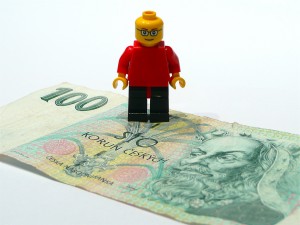 If you’ve been reading this blog for a while you know I’ve been trying to write a book. More for the satisfaction of actually having written a complete thought longer than a blog post. The major premise of the book for the last 3 years (yes it’s taken me that long) has been reapplying the concept for capitalism to softer currencies like trust, knowledge and attention.
If you’ve been reading this blog for a while you know I’ve been trying to write a book. More for the satisfaction of actually having written a complete thought longer than a blog post. The major premise of the book for the last 3 years (yes it’s taken me that long) has been reapplying the concept for capitalism to softer currencies like trust, knowledge and attention.
I’ve struggled to articulate this concept because I’m not an economist. So I decided to do some reading and went back to the source: Adam Smith and his book Wealth of Nations (Amazon) (Project Gutenberg). It’s especially interesting to go back and read Wealth of nations when you rethink what Capital is and replace nations for companies.
This is my newest attempt to put some solid thinking behind the concept. Please tell me what you think (especially if you’re an economist).
Capitalism as Adam Smith described it is a simple concept that, like most theories, is not practiced in its purest form. In the simplest terms Capitalism is the act of investing capital in a free market in order to return even more capital. This is the basis of the old adage that you have to spend money to make money.
Capital on the other hand is a much more fluid concept. Even the word capital stems from the same origin as cattle. Capital used to be (and purists would argue still is) the actual tangible *stuff*. As kingdoms grew in wealth capital took the shape of valuable and much more portable metals like gold and silver and eventually countries established currencies out of these metals and eventually currencies that represented those metals. In theory a $20 dollar bill is supposed to be backed up by $20 dollars worth of gold (this isn’t even the case anymore). Today currency really represents the overall economic value of your country versus the amount of money that has been printed. I’m not an economist at all but I’ve been told it basically works the same way the stock market does.
So very roughly (and I’m sure several economists will take issue with my sweeping generalizations) Capital has evolved from the actual stuff to something worth the same amount of value to currency produced by kingdoms to currency as a proxy for something of value to currency that is a proxy for the economic value of your country and its ability to continue to produce value.
And in a World where my paycheck is electronically deposited, my bills are paid electronically and I purchase everything on a credit card so I can accumulate airline miles (another form of currency?) I rarely get the satisfaction of carrying around a proxy for supposed capital worth. It’s all just digital.
Capital was always supposed to be based on something that was rare and hard to obtain or something that was in limited supply. Capitalism worked because businessmen could pool their resources to fund a fleet of boats to sail to the furthest reaches of the planet to obtain precious metals, spices or cheap labor (aka slaves). Invested capital created the ability to overcome distance and gain access.
But what happens to capital when reach and access all but ubiquitous? What happens when everything is a commodity? All materials and manufacturing are so affordable that almost anyone in a first world country could access them almost at will? What happens when there are no limited supplies? (Yes I understand that certain materials are hard to obtain but there are plenty of perfectly acceptable substitutes.)
What needs to happen is that we abstract capital even further and focus on the true scarcities that exist. These scarcities are a kind of “soft capital”, for my own purposes I would like to focus on trust and knowledge with the goal of returning innovation.
Similar Posts:
- Time and Social Capital: The Ultimate Constraint
- Wild Crazy Ideas About the Relationship Between Social Media and Economics
- Social Media, Social Capital and the Future of Capitalism
# of Comments 6
# of Comments 6
# of Comments 9